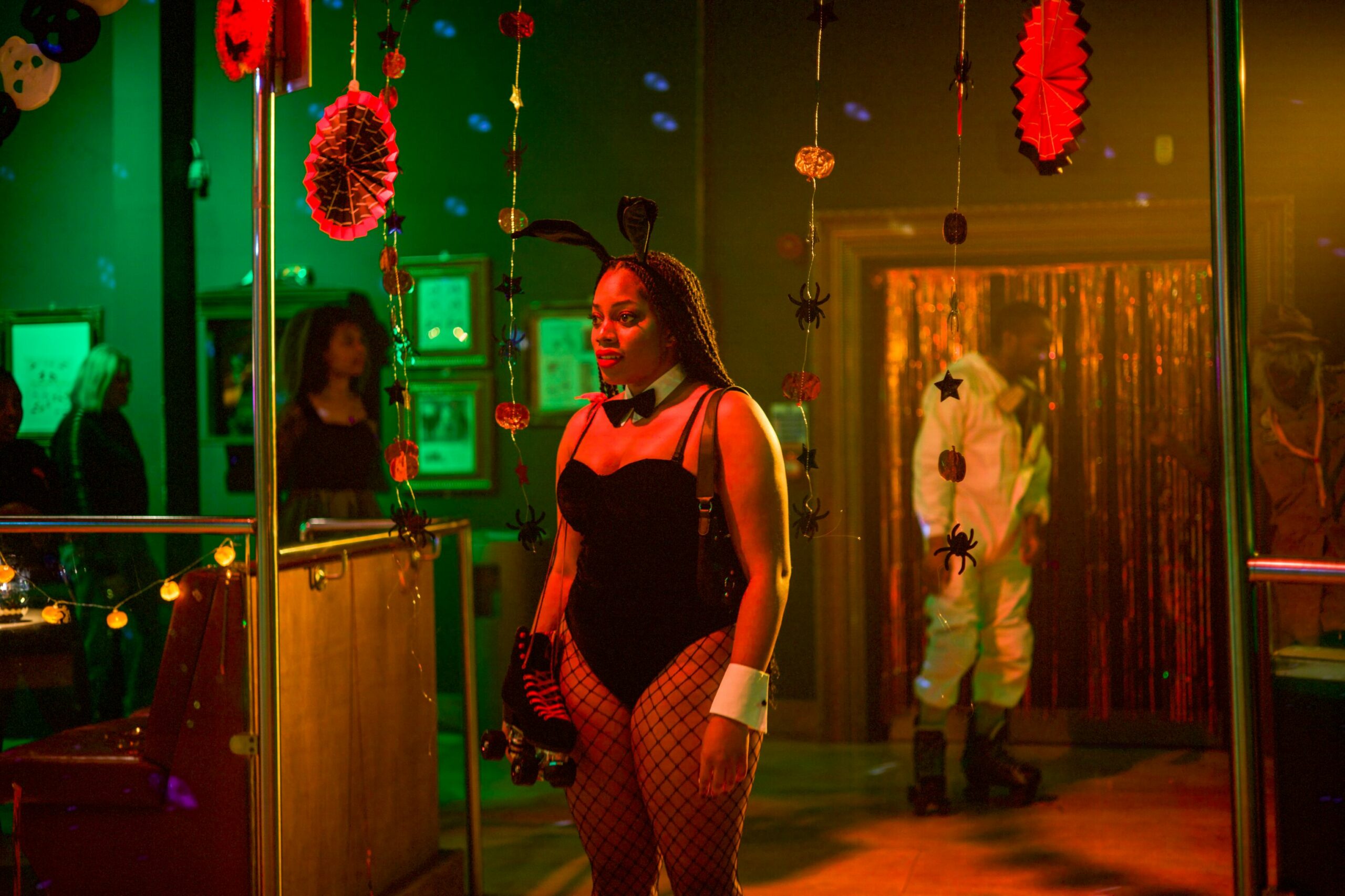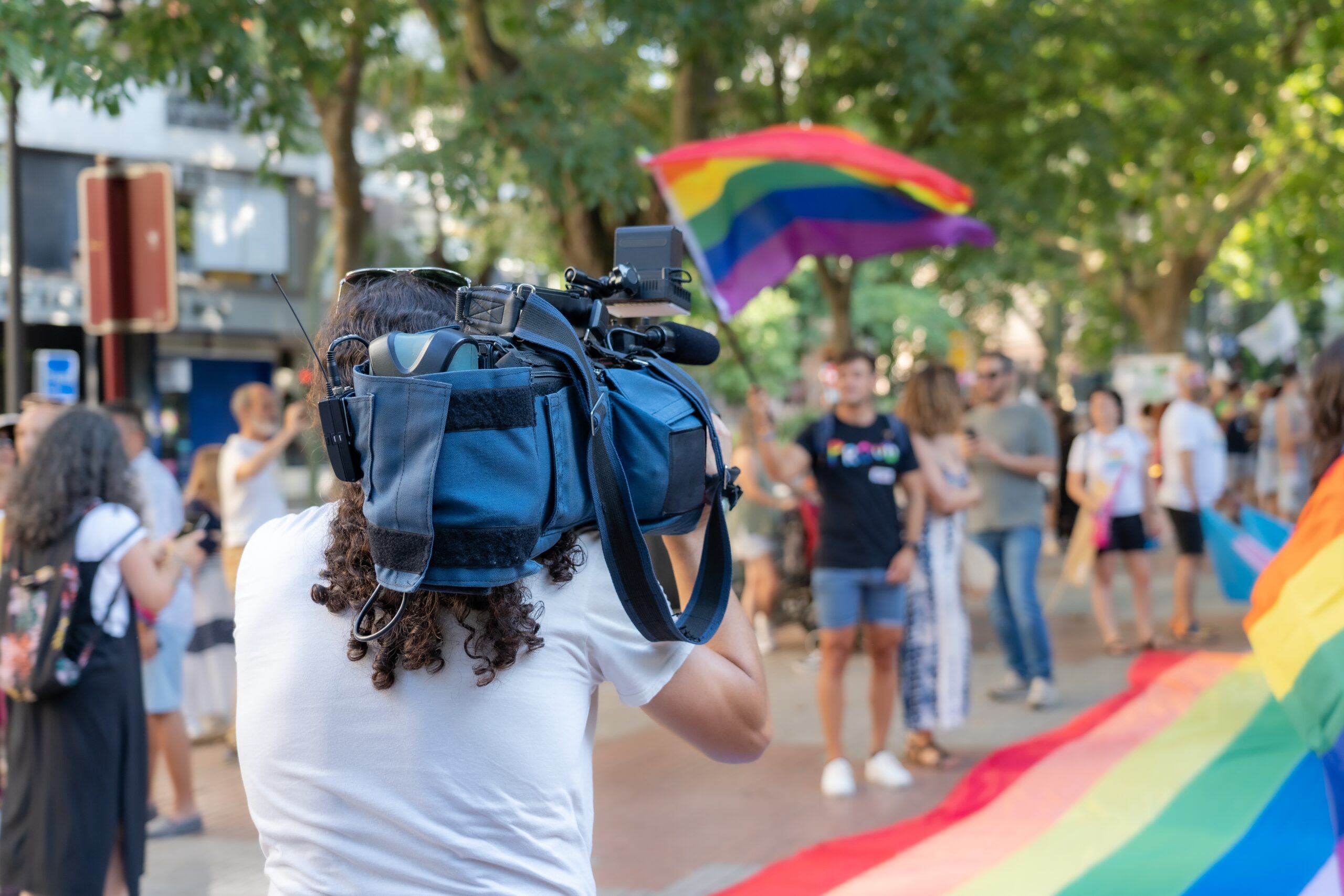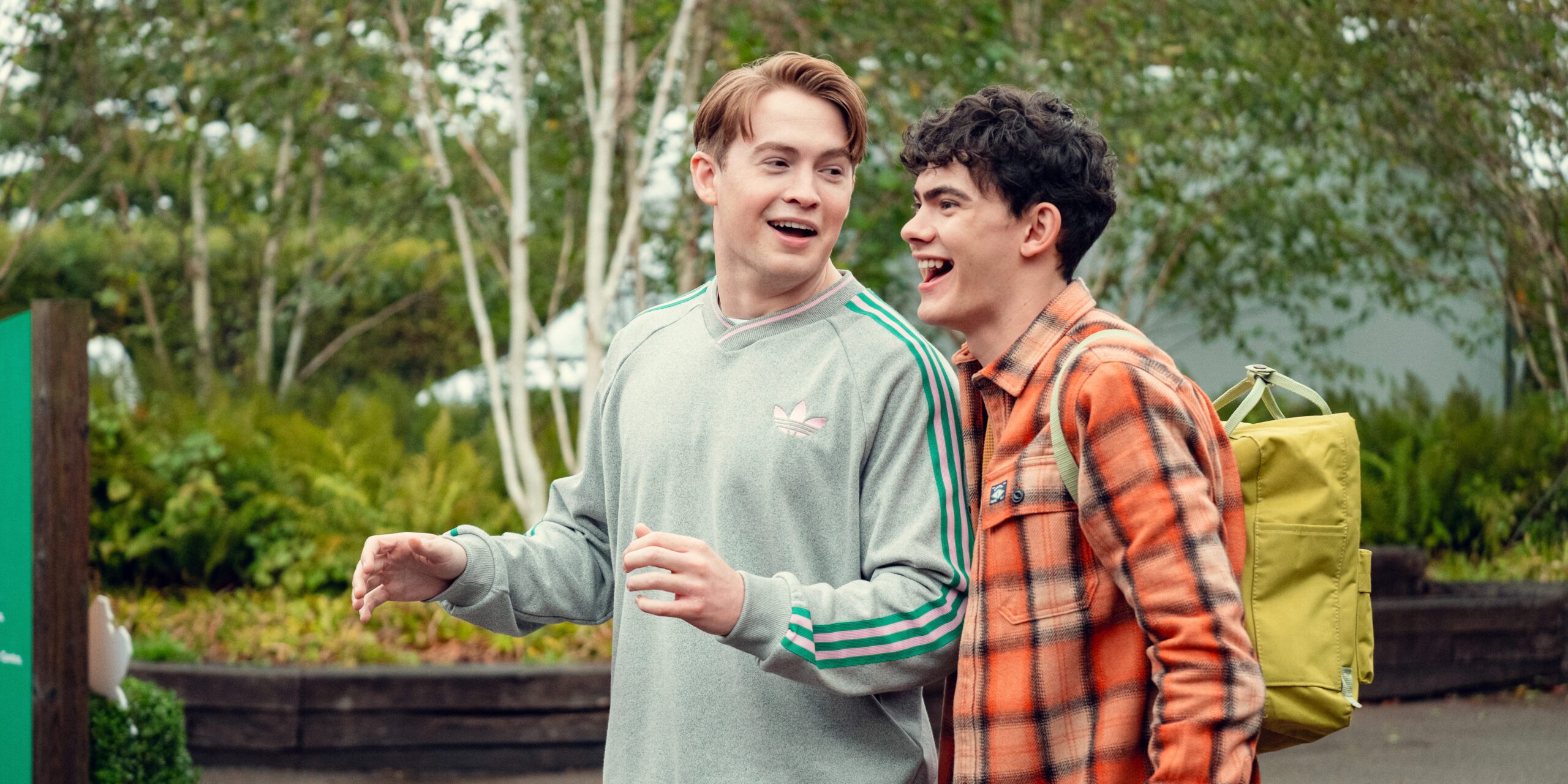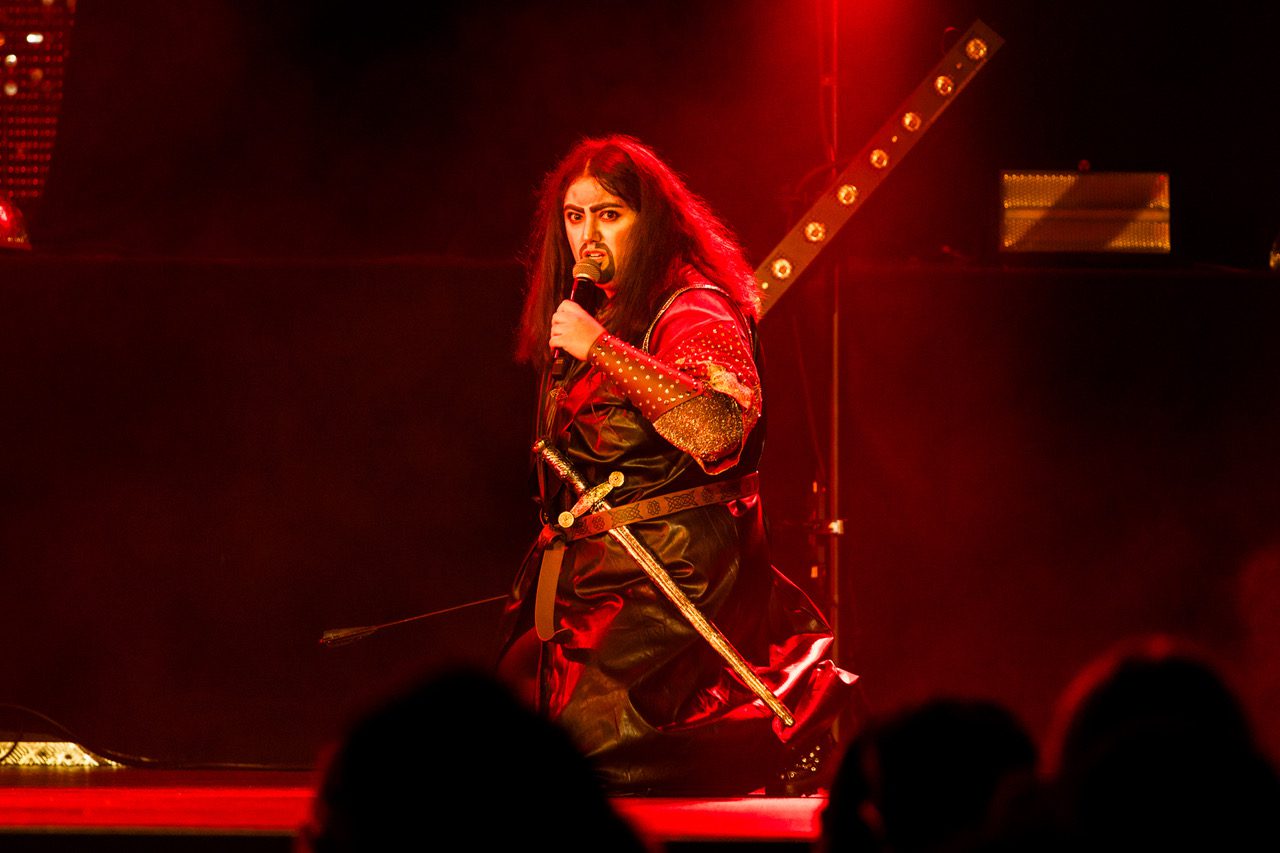How casting director Aisha Bywaters cast Channel 4’s ‘Queenie’ and what she looks for in self-tapes and auditions.
From the moment it was published, Candice Carty-Williams’ novel Queenie was one to watch. It spawned a four-way bidding war between publishing houses, and now it’s a much-anticipated television series on Channel 4, cast by the award-winning Aisha Bywaters.
Aisha has worked as a casting director on Three Little Birds, We Are Lady Parts, The Last Tree, and Man vs Bee. In 2022, she won the BAFTA TV Craft Award for Scripted Casting for We Are Lady Parts and again in 2024 for Three Little Birds.
Aisha is also a massive fan of ‘Queenie’, and this love and understanding of the character has resulted in a fantastic cast for the show. Dionne Brown (Criminal Record, The Walk-In) plays the titular role alongside Jon Pointing (Big Boys, Murder is Easy), Samuel Adewaunmi (The Last Tree, Secret Invasion), Joseph Marcel (The Fresh Prince of Bel-Air, The Exorcism of God), and Tilly Keeper (You, Marooned Awakening).
We spoke to Aisha about the casting process for Queenie, alongside other career highlights and her advice for performers hoping to stand out. Here’s what she shared:
Hi, Aisha! How did you first get started in casting?
I went to university, did a politics degree and left uni, and then I didn’t want to work in that industry. I had always been interested in theatre, and I was in the National Youth Theatre when I was younger, but I knew I didn’t want to be an actor. So I went and worked [as an intern] for a theatre company called Tamasha Theatre Company in London – a South Asian theatre company.
While I was there, the director was casting a play and I just helped out on the day and then was like, “Oh my goodness, what is this? What is this job? This is amazing. I need to find out more about it.”
So I sent some emails out to see if I could get an internship in casting, and then I was lucky enough to get a couple of internships. I did an internship at the RSC. I did one with Crowley Poole. I then worked with Debbie McWilliams on a Bond film for two weeks.
I was lucky as a lot of opportunities were in London, and I’m from London, so I could stay home and work. Now there are more casting directors around the country, and more hybrid working, which makes working in casting more inclusive for all.
How can a performer really stand out to you in an audition or a self-tape?
It’s such a weird thing to say, “How do you stand out?” I understand the logic behind it, but there’s nothing that you can do. All you can do is be you. And that’s kind of how you can stand out: It’s just to be authentic.
Self-tapes are about if you’re right for that role, but they’re also about discovering things about actors. For auditions, it’s taking the time to meet an actor and work out who they are and how you could cast them. So, all you can do is what you think is right and trust your instincts.
It sounds like a cliche, but you see it sometimes with someone who’s been trying really hard for years, and then they just let go and be themselves and bring something of themselves when they’re acting, and then it changes things. They just sort of light up.
In my job, it’s about speaking to directors and producers and being like, “If we cast this actor, you’re going to get this sort of performance or this sort of person.” So give me the gift to be able to discuss you properly, to champion you – I can only do it if you show me yourself.
How did you first become involved in Channel 4’s ‘Queenie’?
I was lucky enough to have a job interview for it. I’m very happy to have had a successful interview!
The production team reached out to me and said, “We’d like to meet you for something that we’re doing.” I met with them, and I am a massive fan of the book. I knew that it was being made for TV, and I had a picture of the front cover on the book on my work vision board of things that I want to work on.
When this came in, it was a big deal for me. So I’m just really lucky that we had a chat and they responded to me and the way that I work and thought that it could work with what they were trying to do.
Could you tell us a bit about the casting process for ‘Queenie’?
The casting process for Queenie was long and vigorous. It’s called Queenie, based on a book that’s about ‘Queenie’ [the character]. In all honesty, we discussed people and we all had ideas of who it could be, but it didn’t feel like she was necessarily within the system, and it felt like we needed to do a search.
So we did a massive search that we put all over social media, and we also contacted people and groups. She’s from South London, so you know where to look. Obviously, all the roles went out on Spotlight throughout the whole project, and all the casting was done at Spotlight.
Because of the book, people got in touch from all around the world, which was mad. Those moments are amazing because you really see the love for a project, but also, when anything is based upon material that already exists, there’s a pressure. There’s how I’ve always viewed [Queenie] because, especially when reading a book, you create this character in your head and how they look. So trying to articulate that can be really tricky so that everyone feels like the adaptation that we are doing is a good representation of what they read. That was what we were trying to do: make sure it felt true to the piece of work.
It was amazing because Candice (Carty-Williams) is the writer’s showrunner, so she’s right there. But also, we have to acknowledge this is a new piece of work, and it’s been a while since she’s written the book, and some changes have been made to make it into a TV show.
[Queenie] was the key to unlocking everything, I think. We had about 2,000 submissions, then we [requested self-tapes from] 500 people. It was a lot. Then we had to cast her best friend and her love interest, and we did a lot of chemistry calls between these people and a couple of rounds in Spotlight. What was amazing was that these actors started to become close over this process of seeing each other. So that was really nice as well because you always feel, as a casting director, it’s really tough to put everyone in this situation where they know who’s up against them.
What was the moment when you realised you’d found your ‘Queenie’?
Pretty early on, everyone was really responding to Dionne [Brown] playing ‘Queenie’. Every time she came in, she got better and better. So, all she did was solidify it every time.
But even from the first audition, it was like, “Yeah, there’s something about her. We like her.” And then we went through this process of [her coming in for] between five to seven rounds. It was a long process, because it wasn’t just about her. Like I said before, it was about the chemistry with other people.
Were there any other memorable moments during the casting process?
I think there were so many memorable moments. We’re lucky enough to have Jon Pointing be her ex-boyfriend ‘Tom’. He came in and did a test for us. It’s just always a joy to get in a room with an actor like that – who’s just so good at what he does because some of these roles are quite hard and quite technical.
I worked on a film years and years ago called The Last Tree with casting director Shaheen Baig that [Samuel Adewunmi was] in and I haven’t had the pleasure of working with him again for a long time. So to get him in, to see him work and then for him to land the role – it was just a complete joy to cast.
Also, Joseph Marcel plays the grandfather, and it was just amazing to have a moment with him and for him to come and meet us. [Joseph] is ‘Jeffrey’ from Fresh Prince of Bel-Air, and it’s really cool that he did that. [It’s] just really nice [and] helps an audience, in my mind anyway, if you have this person who feels nostalgic and homely and reminds the audience of their childhood.
[Queenie] loves her grandpa, and he makes her feel at home, so hopefully having him there will make that reference really easily for audience members, and I love the fact that he read it and responded to it and wanted to be a part of it. It was just a real honour.
‘Queenie’ is adapted from a very beloved book – did that add pressure for you to get the casting right?
There is always a pressure to, but this is an adaptation, this is different. Fundamentally, the majority of it is the same story. There is and always will be a pressure, but you just have to release yourself from it and be like, “All we can do is the best we can do.”
[There was pressure] when it started and you’re like, “I don’t know who [Queenie] is and we’ve got to find her.” But everyone’s goal was the same. We weren’t going to stop until we found her. There is no show without her!
That blind belief and searching high and low, but then always having this person throughout the whole process, who you think is it – you’re getting closer and closer, but you still need to check and search high and low just in case – was helpful.
And obviously, as well, just having Candice there, who was just so open about who the characters were – that really helps to have that person there to help you understand who that person is to them. Also, the rest of the team. The producer, Lisa Walters, has been working on it for ages with Candice as a showrunner, but also the lead director, Joelle (David), is there. How do we all see it making sense? It is a different thing from when it was just [Candice] alone writing her books? Even that in itself – that it’s now a team collaborating together to find the role – is really helpful.
What has been your favourite project to work on so far and why?
My favourite project is We Are Lady Parts. I had never read anything like it in my life. I sat on a tube and would laugh out loud. I couldn’t stop myself. It was just pure joy, and they are the women that I want to be, who are just completely and utterly authentic in themselves.
So again, [it’s] really daunting – who are those people? But to have gone on that journey and found those people and been in those sessions, whether it’s just the chemistry tests between all the main characters or all of them doing tests as a band – it was just such a pleasure and such an honour.
I’ll always just remember it really fondly, and it’s the first thing for me that I ever worked on as sole casting director that I then got to see and be like, “Okay, the casting makes sense. I’ve got a voice as a casting director; I’ve got my own voice. I can do this.” So in that way, it will always be really important to me.
What’s your top tip for performers?
Stay in your own lane. [Don’t] worry about what’s happening with everyone else around you.
I have to tell myself this as a casting director because I’m also a freelancer, and other people are getting jobs that I might have gone up for. It’s the same thing: you are on your own journey. [Don’t] worry – someone might be getting things faster than you or be seen for things that you should be seen for, but just trust what’s happening, believe in what’s happening and your journey, and don’t second guess it.
Finally, what would be your dream project?
I don’t know what it is, but it would be epic. I want to cast a lot of people. I’ve seen a lot of fantastic actors who I feel like I never get to cast, so I just want to cast this epic series that goes through different worlds and different times and [give] all these wonderful people an opportunity to show their skills. I’ve had a ball over the last 16 years, meeting so many wonderful actors, so that would be my dream.
Thank you to Aisha for sharing her experience and insights with us! ‘Queenie’ is available to watch and stream on Channel 4 now.
Take a look at our website for more interviews and advice from casting directors.
‘Queenie’ was cast using Spotlight, with many in-person auditions taking place in our studios. Find out more about our membership options and start looking today!



















